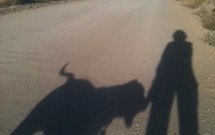
In 1964, French Anthropologist, Claude Levi-Strauss published The Raw and the Cooked, the first volume from Mythologiques, a structural study of Amerindian mythology. In the introduction, Levi-Strauss writes of his confidence that “certain categorical opposites drawn from everyday experience with the most basic sorts of things – e.g. ‘raw’ and ‘cooked,’ ‘fresh’ and ‘rotten,’ ‘moist’ and ‘parched’ and others – can serve a people as conceptual tools for the formation of abstract notions and for combining these into propositions.” I’m thinking the opposites ‘scarcity’ and ‘abundance’ might be two notions that exemplify and explain one’s approach to all of life for all of us.
I find that an attitude of scarcity creates a sense of urgency when whatever is, is not enough. Not enough money, beauty, possessions, or not enough intangible qualities like esteem, power, or prestige. The sense of not having enough produces a desire to find that something more that is the momentary focus of one’s sense of scarcity. Then there is the agenda, the strategy, and the expectations and we’re off to the races, trying to create and achieve a sense of fullness. But this is impossible. Sometimes a sense of scarcity fosters defeat. We turn on ourselves with blame and judgment. The formula is all wrong. If we have embraced scarcity there will never be enough. We’ll always be chasing enough and more and that is an endless, hopeless pursuit. Scarcity demands that we live in the future because the present is paltry and shabby compared to anything we can see in our fantasy of more; it requires that we settle for a sense of ‘less,’ knowing there might be more or that we delude ourselves into thinking that some future more might satisfy us. The present is never good enough for one who sees through eyes of scarcity; nor is any other person enough – not spouse, children, family, co-workers or friends, not our homes, our possessions, or ourselves. Certainly our idea of God is not enough.
If, on the other hand, we begin with a sense of abundance – the simple acknowledgement that what we have now, in any area of our lives, is truly enough – that produces calm acceptance and a feeling of satisfaction. Enough becomes a belief rather than a measure of quantity. The sense of ‘enough’ begins to transform every area of our lives. We look honestly around us and see that what is is what really matters – this earth as the foundation and basis of our lives, our family, our work or jobs that supply us with the means to live in this world. We begin to see ourselves as enough and we settle into gratitude and acceptance. We can look at our lives, not as an acquisition of more, but as a deepening sense of enough. This today, this now, this you, banishes judgment and creates acceptance and presence, and a sense of goodness that, if cultivated, grows into abundance and gratitude whether we ever have more. It can always be enough.
Though which lens do you see yourself and your life and everything and everyone in it? Scarcity or abundance. Is it enough?
 Southwestern College Santa Fe, NM
Southwestern College Santa Fe, NM





